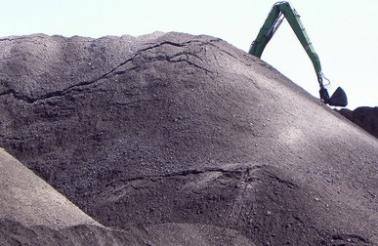
A new report titled “Bankrolling Climate Change” calls out the top 20 banks that are financing the dirty coal industry.
The top three “climate killers” will not As officials from around the world are assembling in Durban, South Africa to discuss ways to combat climate change, banks around the world are busy trying to figure out how they can profit off of making the climate crisis worse.
In fact, between 2005 — the year the Kyoto Protocol went into effect — and 2010, funding for coal nearly doubled. Yes, you read that right: As the world’s leaders have been trying to get their act together and deal with the most urgent existential crisis humanity has ever faced, the biggest banks in the world have been busy sinking as much money as they can into the single largest cause of that crisis (emissions from coal-fired power plants are the biggest source of man-made carbon pollution).
As the report notes, these banks are not unaware of the climate crisis. It’s just that they see it more as an opportunity for some great PR than a problem they have a stake in solving even if it means leaving money on the table. All of the top 20 coal bankrollers have made climate commitments that are drastically contradicted by where they’re actually investing their money.
JP Morgan Chase claims it’s “Helping the world transition to a low-carbon economy”, for instance. Citi holds itself out as the “Most innovative bank in climate change” — which sounds more like Citi is gunning for Chase’s number one spot than trying to help solve the climate crisis, but who am I to quibble with how Citi chooses to word its greenwash.
Bank of America has declared that “The most formidable challenge we face is global climate change.” A fittingly purposeless statement, given that BoA has invested $4.3 billion in the US coal industry, making it the single largest underwriter of America’s coal problem.
Here is a chart showing which banks made the top 20, and the amount they’ve invested in companies that are polluting our communities and wrecking our climate:
| Bank | in billion Euro | Ranking |
| JP Morgan Chase | 16,540 | 1 |
| Citi | 13,751 | 2 |
| Bank of America | 12,590 | 3 |
| Morgan Stanley | 12,117 | 4 |
| Barclays | 11,514 | 5 |
| Deutsche Bank | 11,477 | 6 |
| Royal Bank of Scotland | 10,946 | 7 |
| BNP Paribas | 10,694 | 8 |
| Credit Suisse | 9,495 | 9 |
| UBS | 8,217 | 10 |
| Goldman Sachs | 6,770 | 11 |
| Bank of China | 6,323 | 12 |
| Industrial and Commercial Bank of China | 6,182 | 13 |
| Crédit Agricole / Calyon | 5,637 | 14 |
| UniCredit / HVB | 5,231 | 15 |
| China Construction Bank | 5,110 | 16 |
| Mitsubishi UFJ Financial Group | 4,980 | 17 |
| Société Générale | 4,742 | 18 |
| Wells Fargo | 4,523 | 19 |
| HSBC | 4,432 | 20 |
Data provided by Profundo
An international coalition of NGOs came together to release this groundbreaking report, including urgewald, a German environmental organization; groundWork and Earthlife Africa Johannesburg, two South African social and environmental justice organizations; and BankTrack, an international network. RAN contributed research to the report.
A full copy of the study with a ranking of all the researched banks can be downloaded here. The underlying data for this research were provided by Profundo economic research. They can be found here.
This post was originally published by the Rainforest Action Network.
Courtesy of http://www.care2.com

